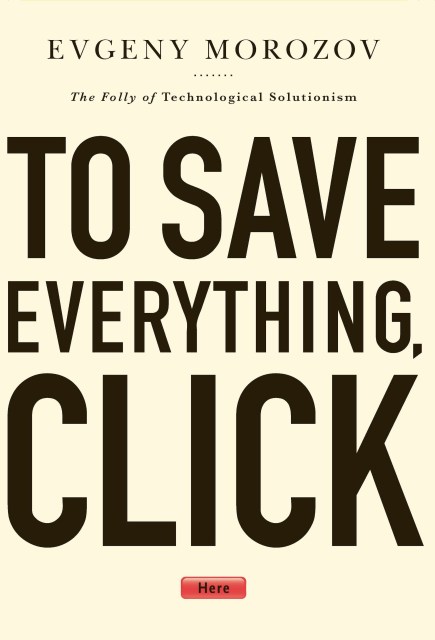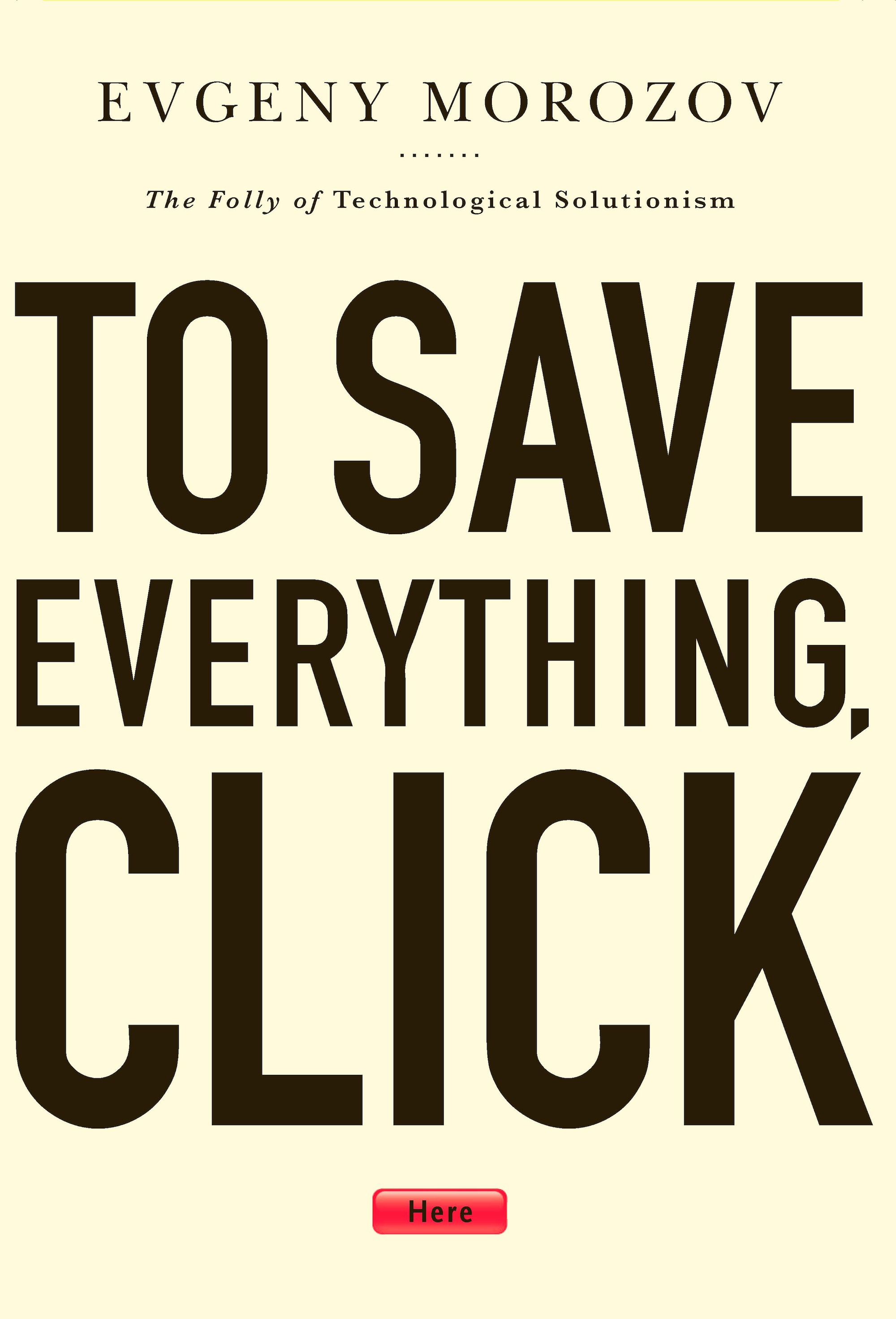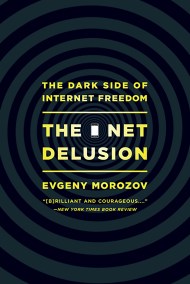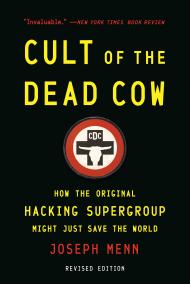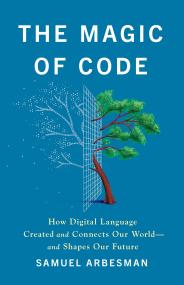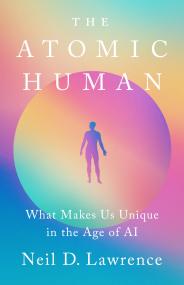By clicking “Accept,” you agree to the use of cookies and similar technologies on your device as set forth in our Cookie Policy and our Privacy Policy. Please note that certain cookies are essential for this website to function properly and do not require user consent to be deployed.
To Save Everything, Click Here
The Folly of Technological Solutionism
Contributors
Formats and Prices
- On Sale
- Mar 5, 2013
- Page Count
- 432 pages
- Publisher
- PublicAffairs
- ISBN-13
- 9781610391399
Price
$11.99Price
$15.99 CADFormat
Format:
- ebook $11.99 $15.99 CAD
- Trade Paperback $21.99 $28.99 CAD
This item is a preorder. Your payment method will be charged immediately, and the product is expected to ship on or around March 5, 2013. This date is subject to change due to shipping delays beyond our control.
Buy from Other Retailers:
In the very near future, “smart” technologies and “big data” will allow us to make large-scale and sophisticated interventions in politics, culture, and everyday life. Technology will allow us to solve problems in highly original ways and create new incentives to get more people to do the right thing. But how will such “solutionism” affect our society, once deeply political, moral, and irresolvable dilemmas are recast as uncontroversial and easily manageable matters of technological efficiency? What if some such problems are simply vices in disguise? What if some friction in communication is productive and some hypocrisy in politics necessary? The temptation of the digital age is to fix everything — from crime to corruption to pollution to obesity — by digitally quantifying, tracking, or gamifying behavior. But when we change the motivations for our moral, ethical, and civic behavior we may also change the very nature of that behavior. Technology, Evgeny Morozov proposes, can be a force for improvement — but only if we keep solutionism in check and learn to appreciate the imperfections of liberal democracy. Some of those imperfections are not accidental but by design.
Arguing that we badly need a new, post-Internet way to debate the moral consequences of digital technologies, To Save Everything, Click Here warns against a world of seamless efficiency, where everyone is forced to wear Silicon Valley’s digital straitjacket.
Genre:
Newsletter Signup
By clicking ‘Sign Up,’ I acknowledge that I have read and agree to Hachette Book Group’s Privacy Policy and Terms of Use
